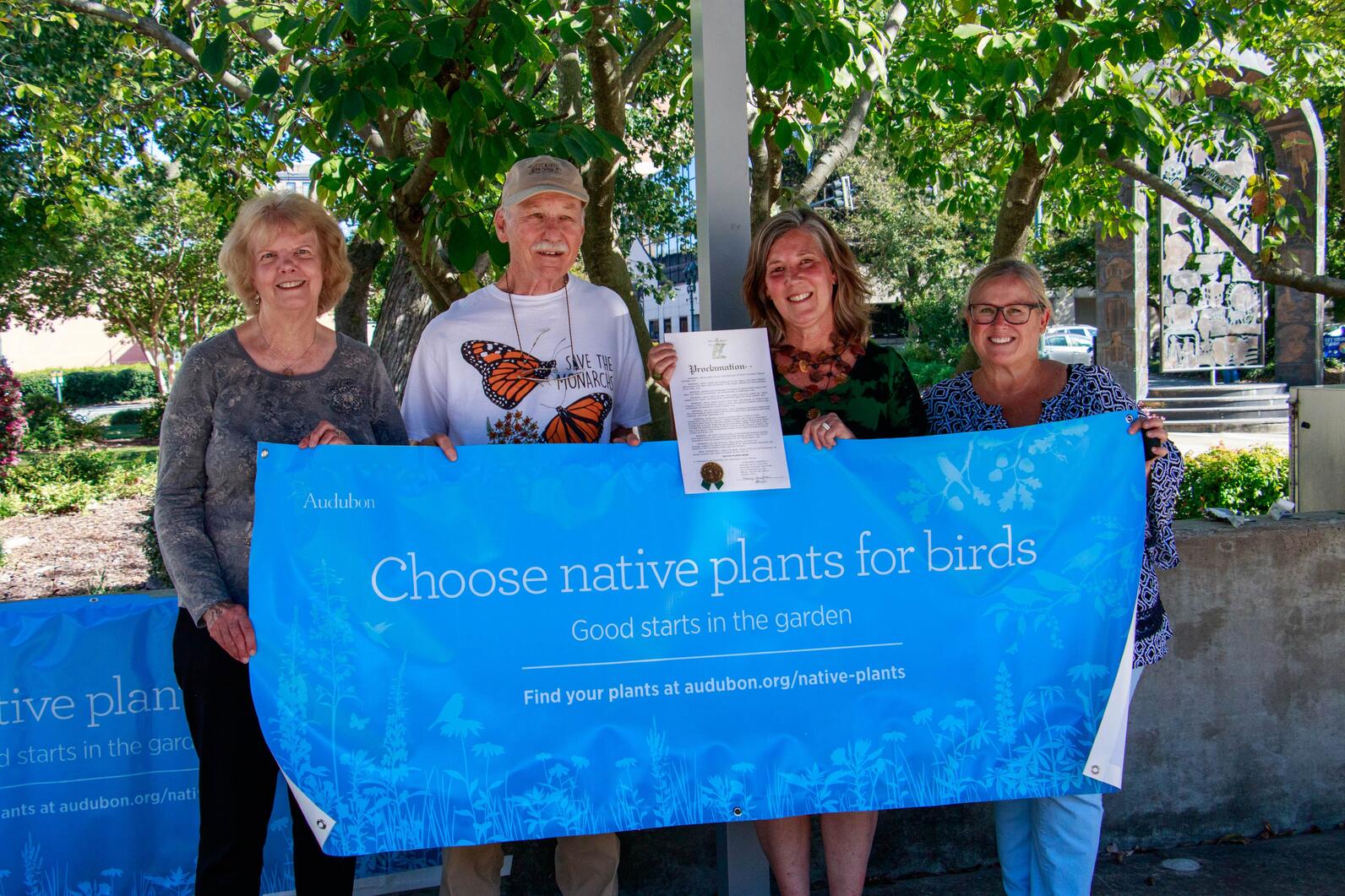Leaves are changing color, which means it’s time to get your hands dirty and give your yard a bird-friendly makeover—and Native Plants Week is here just in time to help.
In partnership with Audubon North Carolina, Gov. Roy Cooper designated Oct. 18-24 as a special celebration to highlight the importance of native plants for birds, pollinators, and our state’s natural heritage.
Why are native plants important for birds? In a word: insects. Virtually all land birds require insect food for their young. Native plants support healthy populations of insects, including caterpillars, that breeding birds feed their nestlings.
In contrast, non-native plants contain foreign compounds that most native insects won’t eat. Without insects for food, baby birds starve. By adding native plants to our community, we can help restore the imbalance created by non-native plantings and ensure the survival of future generations of birds and a healthy local ecosystem.
"This week is a reminder of all the ways we can help birds," said Kim Brand, engagement director at Audubon North Carolina. "You can start by going outside and planting beautyberry, flowering dogwood, or one of hundreds of other beautiful native species that birds depend on for food and shelter. And you can step up your advocacy game by working with Audubon chapters and staff to pass native plants ordinances in your own community. There’s inspiration for everyone this Native Plants Week"
Greensboro Proclamation and other Native Plants Advocacy

Audubon chapters across the state are spreading the message of native plants. Earlier this year, the Greensboro City Council approved a revision to the landscape ordinance. Now, all new development requires that the trees and shrubs planted to meet buffer requirements must be at least 40 percent native species. Most recently, Mayor Nancy Vaughan worked with T. Gilbert Pearson Audubon to issue a Native Plants Week proclamation. The official announcement took plcae Monday, Oct. 18 at Phill G. McDonald Plaza, 220 S. Greene St., Greensboro.
Greensboro joins many communities across the state in promoting native plants. In Durham, New Hope Audubon Society helped pass bird-friendly changes to the city’s landscaping manual earlier this year, removing harmful invasive species from the approved plant list.
Other towns and cities that have changed their plant lists include the Town of Matthews (partnering with Mecklenburg Audubon), the City of Winston Salem, and Forsyth County (partnering with Forsyth Audubon). In Asheville, Blue Ridge Audubon leaders helped pass a policy in 2019 that banned invasive plants on city property and promoted the use of native species. Watauga County passed a resolution to use and promote native plants on county-owned property in March at the request of High Country Audubon Society and the High Country Restoration Coalition. Wake County passed a resolution in support of native plants in 2018.
Native Plants Week Celebration
Looking for more inspiration? Check out our virtual Native Plants Week celebration, which took place Monday. Watch the recording and you'll hear from a panel of native plants experts.
Executive Mansion Inspiration and More Resources
This is the fifth year in a row that the governor has proclaimed Native Plants Week. In 2017, during the first Native Plants Week, Audubon North Carolina kicked off the celebration with First Lady Kristin Cooper and planted 1,000 native plants at the Executive Mansion. Today, the garden is a model for bird-friendly yards across North Carolina and a sanctuary for birds and butterflies in downtown Raleigh.
See photos and get tips on how you can create your own low-maintenance bird garden here.
Fall is the best time to plant the trees, shrubs, grasses, and perennial flowers that will produce food for birds for years to come. Find plants for your favorite birds and pollinators using Audubon’s native plants database.



